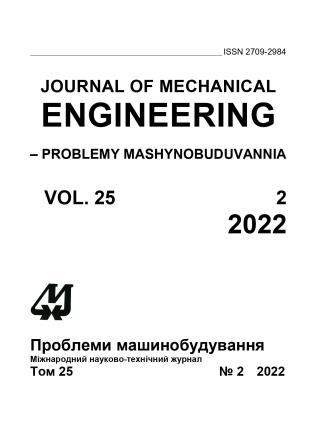Computational Studies of the Thermal Stress State of Multilayer Glazing with Electric Heating
Abstract
Ensuring the efficient and reliable safe operation of ground special equipment of various types, aircrafts is an important and urgent problem. Preservation of the strength, protective properties and transparency of the glazing of machinery cabins in a wide range of temperatures under various strength influences is one of the key components of this problem. Multilayer packages made of different types of glass are used for special equipment glazing. These packages are connected to each other with adhesive polymer materials. Electrically heated glazing, which allows to avoid the special equipment icing, as well as to protect the viewing area from fogging, is used for reliable and failure-free operation of special equipment at low temperatures. Based on this, an important problem that affects the efficiency of the use of special equipment is to ensure the reliable operation of electric glass heating. With the help of a software package developed on the basis of the finite element method for the analysis of the structures thermal stress in 3D formulation, which allows to consider a wide class of practical problems of varying complexity, the problems of non-stationary and stationary thermal conductivity and thermal elasticity for a trapezoidal frontal electrically heated multilayer glazing are solved. A study of the thermal stress state of glazing with an electric heating system, which allows to avoid freezing of glass operating at low temperatures, was carried out. The reasons for which the delamination of the multi-layer glazing may occur (impermissible temperature modes, mechanical strength effects, violation of operating conditions) are determined. Multilayer glazing with an electric heating system is used for aircrafts, military equipment, land transport, which can be operated at different temperatures. In view of this, the study of their thermal stress state and determination of possible causes of delamination allows to ensure the operation reliability and increase the efficiency of the use of special equipment in different climatic conditions. It is planned to carry out further studies of the glass block thermal stress state taking into account the thermostat operation and determining the temperature sensors location points, as well as changes in the physical properties of materials and the power of the heating element with temperature changes.
Downloads
Published
Issue
Section
License
Copyright (c) 2022 П. П. Гонтаровский, Н. В. Сметанкина, С. В. Угримов, Н. Г. Гармаш, И. И. Мележик

This work is licensed under a Creative Commons Attribution-NoDerivatives 4.0 International License.
All authors agree with the following conditions:
- The authors reserve the right to claim authorship of their work and transfer to the journal the right of first publication of the work under the license agreement (the agreement).
- Authors have a right to conclude independently additional agreement on non-exclusive spreading the work in the form in which it was published by the jpurnal (for example, to place the work in institution repository or to publish as a part of a monograph), providing a link to the first publication of the work in this journal.
- Journal policy allows authors to place the manuscript in the Internet (for example, in the institution repository or on a personal web sites) both before its submission to the editorial board and during its editorial processing, as this ensures the productive scientific discussion and impact positively on the efficiency and dynamics of citation of published work (see The Effect of Open Access).

